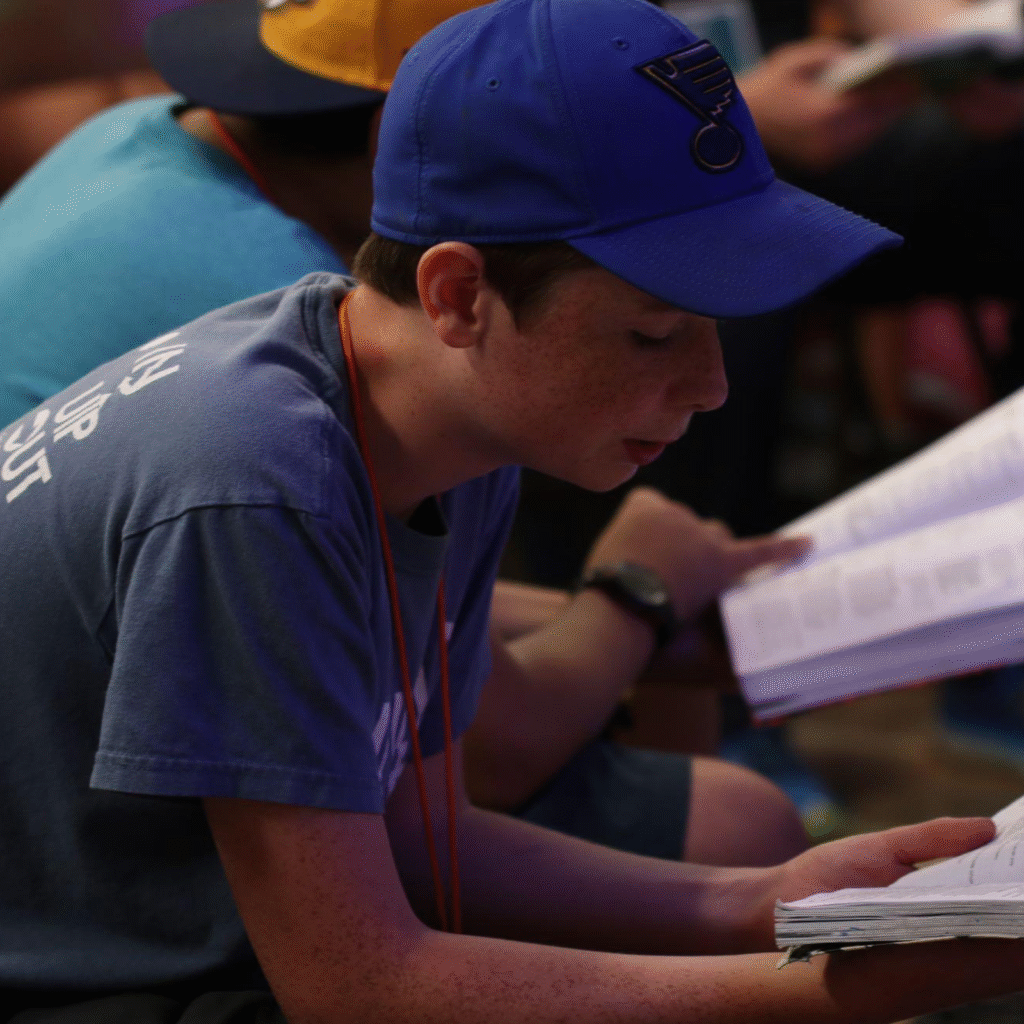
Stephen Ingram
Stephen is a 25+ year youth ministry veteran. His books include Hollow Faith: How Andy Griffith, Facebook, and the American Dream Neutered the Gospel, ExtraOrdinary Time: 365 Ordinary Moments with an Anything But Ordinary God; and Organic Student Ministry. Stephen serves as the Sr. Director of Resource Development for CYMT.
In recent years Sabbath has become a buzz word, not only in religious circles but also in secular spheres. This idea of intentional rest, soul care, and disconnection has gained considerable steam and popularity in mainstream culture. I would offer that this is partly in response to the normalization of the unsustainable pace that has led so many to burnout and breakdown. While rest is an important piece of sabbath there is an underlying value that rest alone does not speak to.
As Walter Brueggemann states in Sabbath as Resistance “Sabbath, in the first instance, is not about worship. It is about work stoppage. It is about withdrawal from the anxiety system of Pharaoh, the refusal to let one’s life be defined by production and consumption and the endless pursuit of private well-being.”
Brueggemann helps us see the other side of rest, the core motivation, namely that our worth is not defined by our work or our production, our worth is based solely in our belovedness by our creator. If we understand sabbath as this two faceted concept of both rest and value then how do our student ministries change in response?
Deprogramming Youth Ministry
If youth ministry embodies sabbath then we have to also embody the understanding that more is not better. Many of us know that more programming does not mean better youth ministry but this knowledge does not permeate into our programatic calendars. Parental, church, and student expectations are often primary drivers in our manic calendaring but it does not have to be this way. One of the best practices I ever implemented into my student ministry is to quarterly reevaluate the rhythm and flow of the ministry. Some ministries will do this on an annual basis but I prefer quarterly because it sets a precedent to respond to imbalanced schedules and rhythms in a more timely manner. It also gives us permission to cut programming that is not effective or is not meeting a need.
Sometimes we can replace this programming and other times we can let the “land lie fallow” in order to replenish our ministry soil.
Either way, a consistent rhythm of evaluation and course correction can be a vital tool to use to value sabbath in our ministry.
Nurture Spaces of Sabbath
For this purpose I am using Sabbath as an environment and not just a day or mindset. We can create rest and value in our ministry through the kinds of spaces we create. Students crave downtime in our ministries. They desire spaces to just hang out together on couches, to play together and to simply talk.
Creating spaces where students do not feel the pressure to perform or do or absorb information tills the soil for a mindset shift in how they experience and understand the priorities of our ministries and in turn the priorities of our faith.
Another way that many youth ministers are creating these spaces is to make them phone free zones. This can be controversial because phones are such an ingrained and normalized part of our lives. Creating these phone free zones, especially when we are just being together, is less about restriction and more about liberation. I cannot tell you how many times I have had students tell me that they are grateful when we do “no phone” time or when we are on a trip and there is not cell reception or wifi. It is often a relief that they have an excuse to just put it down.
Practice Sabbath Boundaries and Mindset
Years ago one of my students told me that it really made them upset when I would not answer texts after 7:00. He made a reference about it in front of some other students and they had a few minutes of poking fun at me, telling me that i did not really care about them. While it was all in jest there was a core of truth in their feelings. I explained to them that after 7:00 was family time and, unless it was an emergency, I would follow up with them the next day.
Then, jokingly, one of them said, “What? Do you love your family more than us”? Without hesitation I responded, “Of course I do.” I think the speed and brevity of the answer shocked them but it also created a sense of priority in our relationship that stuck with them.
Fast forward 12 years, same student, now an adult with a family brings it back up. Not only did he now get it, but he told me how he appreciated the lesson in the moment because it gave him permission to set the sort of boundaries he needed to set in order to be the type of husband and father he wants to be. I know that 7:00pm family time does not technically count as Biblical sabbath but I do believe that it embodies the spirit of sabbath in real and tangible ways for us in ministry.
Sabbath is about the prioritization of time and the things that consume that time. It is also a prioritization of values in our lives.
To be able to tell that student that he was not my top priority was not only important for me and my family but it proved to be important to him and his future family. When we practice boundaries with our students, those like the cellphone limitations, gives them permission to reprioritize and take back their time and availability from the barrage of insatiable demands that they face everyday.
My hope is that you will take some of these unconventional lessons from the idea and practice of sabbath and begin to apply them to your life and to your ministry, knowing that “sabbath was made for humanity, and not humanity for the sabbath.”


